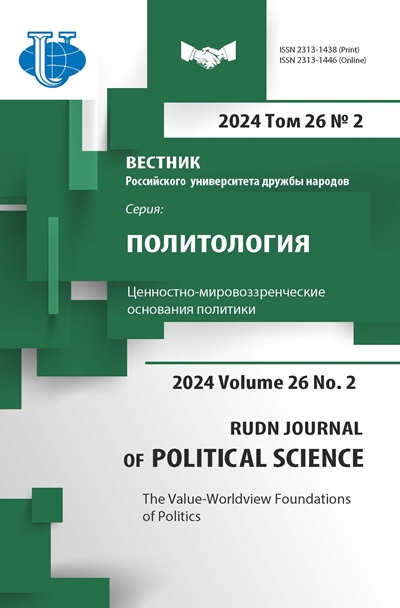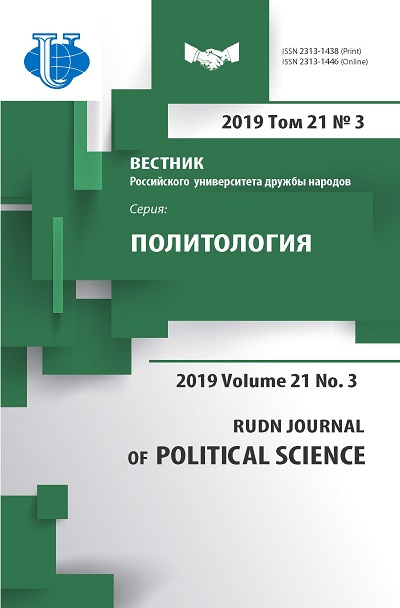The Concept of Liberty in the Yan Fu’s Works
- Authors: Lobova A.A1
-
Affiliations:
- Lomonosov Moscow State University
- Issue: Vol 21, No 3 (2019)
- Pages: 549-557
- Section: Some actual problems of political science
- URL: https://journals.rudn.ru/political-science/article/view/22064
- DOI: https://doi.org/10.22363/2313-1438-2019-21-3-549-557
Cite item
Full Text
Abstract
The article undertakes the analysis of the receptions of liberty in China on a sample of the translation of John Stuart Mill's “On Liberty” by Yan Fu. It is shown that in the Yan Fu' interpretation of liberty undergoes fundamental semantic changes in accordance with the ideological Chinese traditions, in particular with neo-Confucianism. Yan Fu puts collective liberty above the individual one, views the citizen only as part of a united nation. To understand the process of adaptation the new European concept, it is important to bear in mind that the translation and understanding of European thought were conducted within the framework of power relations between China as a colony and Western countries as metropolises. The linguistic aspects of the reception of liberty do not simply reflect the cultural and political realities of China in the late XIX - early XX centuries; it also changes them. Yan Fu tried to combine different types of European and Chinese ideas, in order to change the collective Chinese identity and process the collective memory.
About the authors
Alisa A Lobova
Lomonosov Moscow State University
Author for correspondence.
Email: alice.l.maps@gmail.com
PhD Student of the Department of History of Social and Political Studies
Moscow, Russian FederationReferences
- Wang Shi. Collected Works of Yan Fu. Beijing: Zhonghua Book Company; 1986. 621 p. (In Chin.).
- Lee-chi. “Thirteen Classics” with Annotations and Notes. Ed. by Ruan Yuan. Beijing: Zhonghua Book Company; 1980. 816 p. (In Chin.).
- Lun yuj. The Confucian Analects. Translated by V.P. Vasileva. SPb.; 2001. 180 p. (In Russ.).
- Mill J.St. On Liberty. Anthology of World Liberal Thought (First Half of the Twentieth Century). Translated by A.N. Nevedomsky. Moscow: Progress-Tradition; 2000. 392 p. (In Russ.).
- Sun-Tzu. On Evil Human Nature. Feoktistov V.F. Filosofskije traktaty Sun-czy. Moscow: Natalis; 2005. 275 p. (In Russ.).
- Zhu Xi. Great Learning. Four Books. Beijing: Zhonghua Book Company; 1981. 909 p. (In Chin.).
- Chang Hao. Chinese Intellectuals in Crisis, Search for Order and Meaning, 1890—1911. University of California Press; 1987. 223 p.
- Howland D.R. Personal Liberty and Public Good: The Introduction of John Stuart Mill to Japan and China. University of Toronto Press; 2005. 222 p.
- Huang M.K. The Meaning of Freedom: Yan Fu and the Origins of Chinese Liberalism. Hong Kong: Chinese University Press; 2008. 408 p.
- Mengzi: With Selections from Traditional Commentaries. Trans. and ed. by Bryan W. van Norden. Indianapolis: Hackett Publishing; 2008. 207 p.
- Wright D. Yan Fu and the Tasks of the Translator. Lackner M., Amelung I., Kurtz J. New Terms for New Ideas. Western Knowledge and Lexical Change in Late Imperial China. Leiden et al; 2001. 456 p.
















